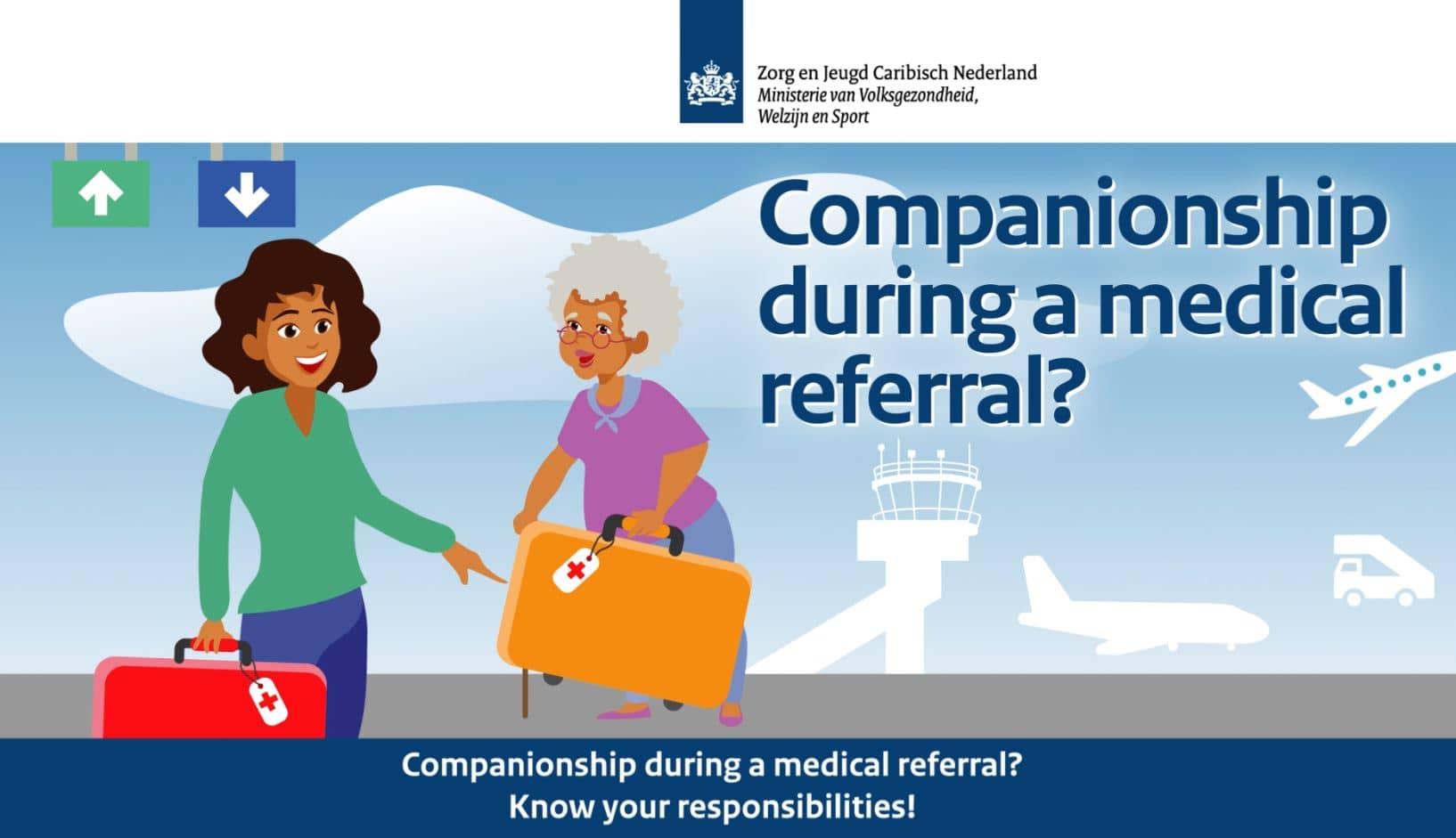Medical referral
If a medically necessary treatment is not available on your island, you are entitled to a medical referral to a healthcare institution that does offer this treatment. The following always applies: as close as possible, further if necessary. ZJCN currently has agreements with healthcare providers in Curaçao, Aruba, St. Maarten, Colombia and the Netherlands.
ZJCN refers to these healthcare providers abroad
Travel and accommodation
ZJCN arranges your travel and accommodation if you are sent abroad for treatment. You are notified as soon as possible once the schedule for your treatment has been finalised.
Reimbursements
ZJCN reimburses the expenses of medically necessary examinations and treatments. In addition, you are entitled to the following reimbursements in the event of a medical referral:
· a daily reimbursement for yourself and any companion*;
* This reimbursement is not applicable to days you are hospitalised.
· the cost of your flight and, if applicable, the flight of your companion;
· airport taxes;
· the costs of transport to the airport of departure, from the airport of arrival to your destination and vice versa;
· hotel charges; or
· accommodation costs for staying with family or friends.
Companionship during medical referral

Accompaniment
If you are going on a medical referral, you are assigned a case manager from ZJCN who is your permanent point of contact for assistance and any questions you may have. In addition, you can be joined by a companion throughout the entire medical referral or a necessary part thereof. This companion must be able to support you physically and mentally during the referral.
You can obtain authorisation for accompaniment if the insured person:
· is under the age of 18;
· has an intellectual impairment;
· has limited mobility and uses a medical aid to move around;
· has a visual or hearing impairment;
· is so seriously ill that travelling without a companion is not possible;
· is referred for a delivery.
A minor insured person can be granted consent for two companions. This is permitted if the insured person:
· is terminally ill;
· is treated with chemotherapy;
· suffers from leukaemia;
· according to a statement from the attending physician, is in a life-threatening situation.
An adult insured person can be granted consent for a second companion if the insured person:
· is terminally ill and death is expected within a week;
· according to a statement from the attending physician, is in a life-threatening situation.
